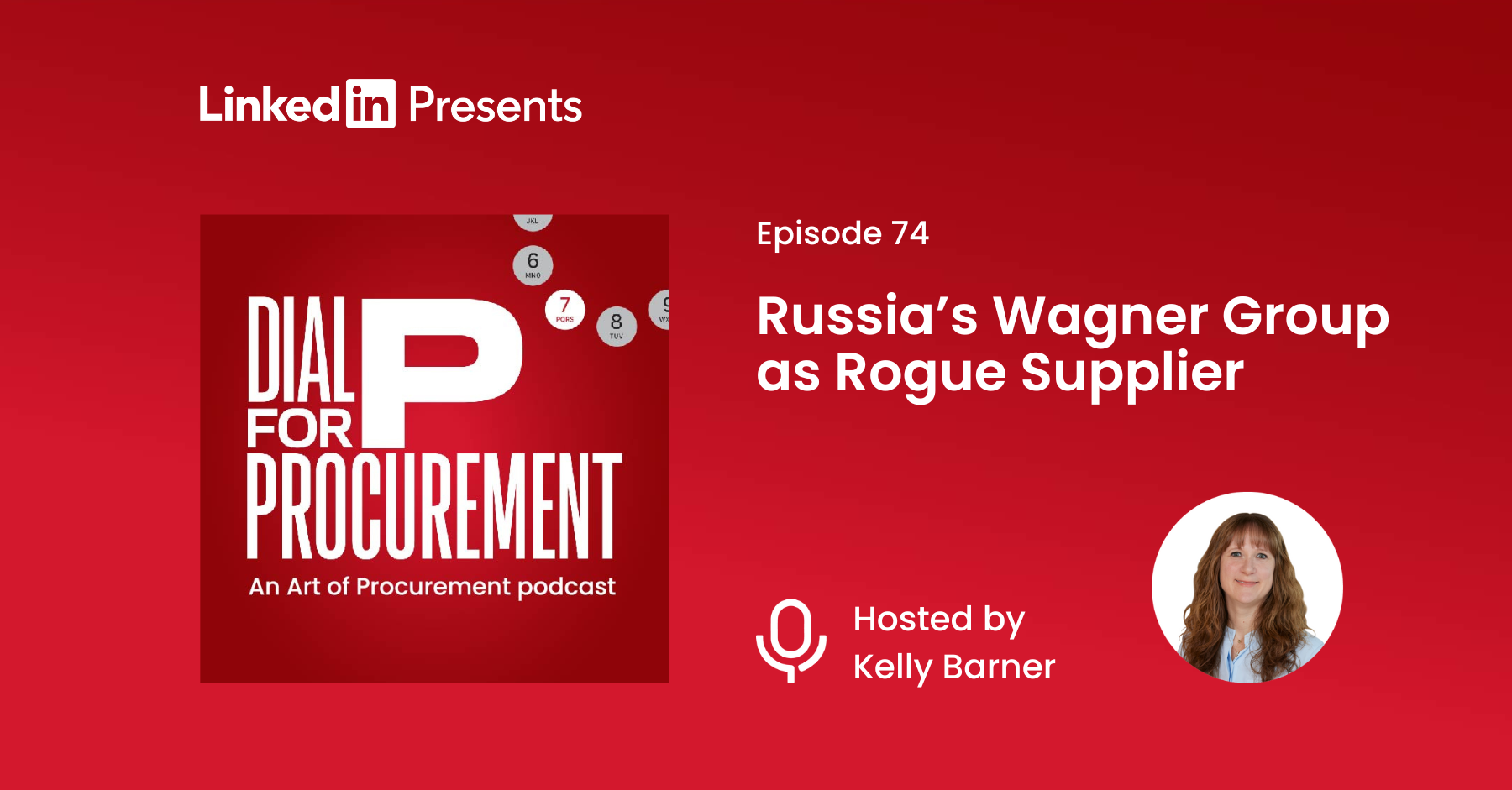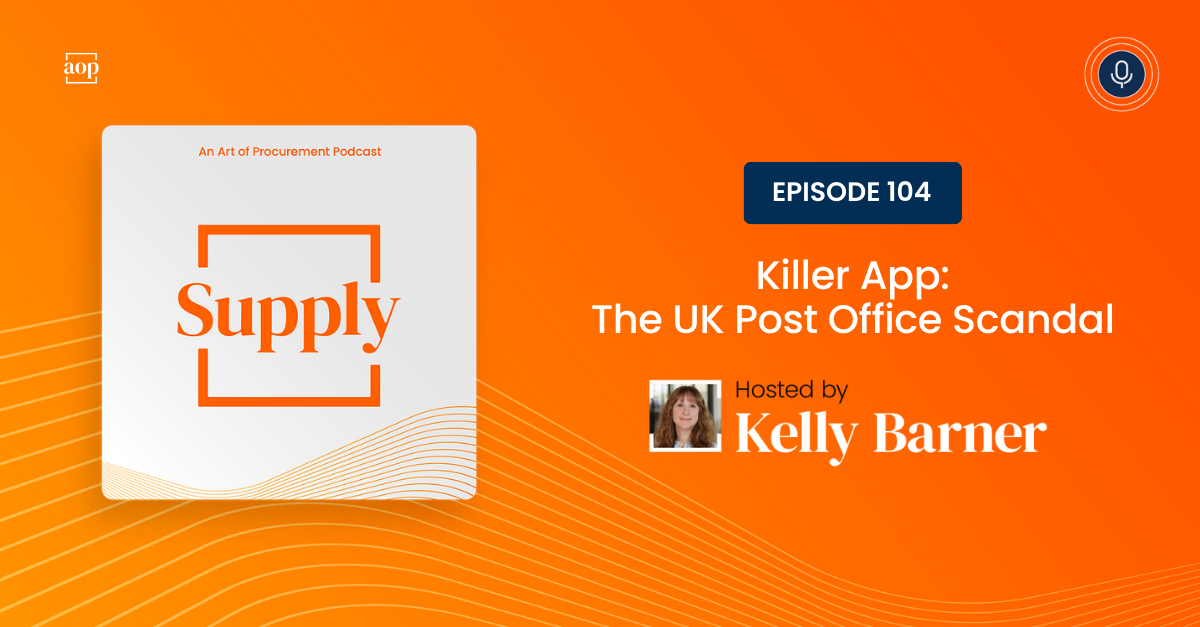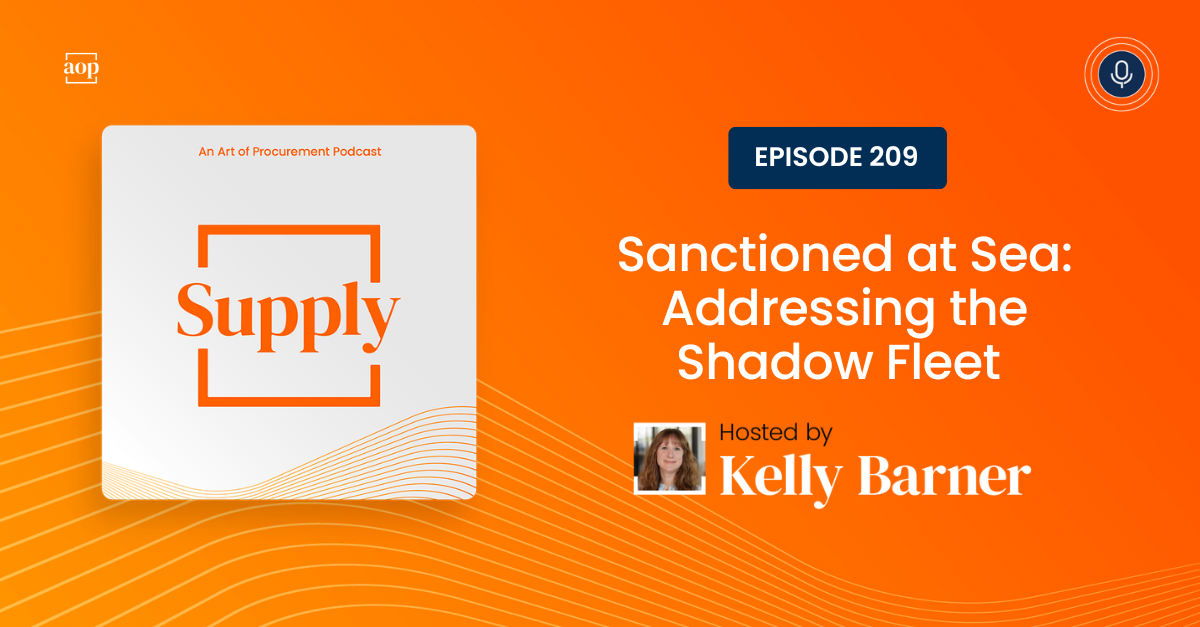
On June 23rd, news broke that the Wagner Group, a private militia operating on behalf of Russia in the war with Ukraine, was staging an armed rebellion against Russia.
It didn’t take many news stories before I started to realize that what was unfolding before our eyes was a supplier relationship gone very VERY wrong. And I wasn’t the only one to hold that opinion. A recent Atlantic Council article referred to Putin’s “venture-capital foreign policy,” which “outsources key tasks to nominally private-sector actors outside the normal chain of command.”
The Wagner Group – and their short-lived rebellion – were both run by Yevgeny Prigozhin. For decades, people have referred to him as “Putin’s chef” because of his background in food service, grocery stores, and restaurants. In the 1980s, he served time in prison for robbery. When he got out, he started selling hot dogs in his hometown to make a living, even preparing mustard in his family kitchen.
Prigozhin wouldn’t remain a hot dog vendor for long. He soon had a stake in a chain of supermarkets, and in 1995 he opened his own restaurant and catering company. His restaurant gained a reputation for excellent food and became the place for influential people to be seen, including then-deputy mayor Vladimir Putin.
Before long, Prigozhin began winning contracts to cater major government events, Moscow’s schools, and the Russian military. With each new contract, Prigozhin grew his business but he also grew his influence. He combined his personal relationships with operational performance, and the Wagner Group was on their way to becoming a global private military company, privately owned but absolutely for-profit.
Supplier Profile: The Wagner Group
Wagner is a complex network of businesses and mercenary groups whose operations have been closely tied to the Russian military and intelligence community, but also to activity in Latin America, the Middle East, and Africa. They offer combat operations, security training and support, and disinformation campaigns… in addition to their catering and food service portfolio.
According to Time magazine, Wagner Group is structured like a special forces unit. They leverage the supplies and supply chain of the Russian military, but they recruit their own talent. In fact, one of Wagner’s best sources of fighters is prisons. They recruit convicts – perhaps in a nod to Prigozhin’s time in prison.
The Relationship
Wagner is connected so closely to Russian military structures that their operatives are entitled to receive specialized military health care, not something you would expect for a regular private sector company.
According to Vladimir Putin’s own statement, Wagner was paid 86.262 Billion roubles ($1 Billion) between May 2022 and May 2023 for salaries and bonuses. Those funds came from the defense ministry and state budget. Wagner’s catering business was paid another 80 Billion rubles to feed the Russian military. If we assume Putin’s statement about being the sole source of funding available to Wagner, that makes the private military company a one-client service provider.
Wagner is more flexible, cheaper, less accountable, and more capable than the regular military, and they offer the Russian government the added benefit of plausible deniability.
Supplier Data
We all know that numbers don’t lie – unfortunately, the people making their case through numbers often do.
Using private military companies like Wagner means that any deaths incurred in Ukraine do not count in the official Russian Ministry of Defense (MoD) reports. According to the Rand Corporation: the U.S. estimates 10,000 fighters from the Wagner Group have died in Ukraine since December, and Prigozhin has stated 20,000 Wagner employees have died fighting in Bakhmut. Neither figure is reflected in official military death tolls.
Keeping the losses suffered by Wagner’s mercenaries out of the public record allows Russia to hide the true costs of war from the Russian people.
Companies outsource things all the time for all kinds of reasons. This is an awful, deadly reason, but it is a clear business case. If you want the public to continue supporting your war (to the extent they do), you need to hide the bad news. And this is one way to do that.
The Contract
The spark that turned this supplier relationship into an armed rebellion was a contract.
Russian Defense Minister Sergei Shoigu announced all private military companies would have to sign contracts with the Russian military by July 1st. It would require those private military groups to take specific steps and operate in certain ways. In return, they would receive legitimate business status.
The Wagner Group said ‘no thank you’ – and refused to sign the contract.
The Conflict
If this is a supplier relationship, it is certainly not a happy one. Prigozhin has pointed at Russian Defense Minister Sergei Shoigu and Chief of the General Staff Valerie Gerasimov and accused them of deliberately starving his forces of supplies. Prigozhin has said that Wagner Group had been planning to return some vehicles to the Ministry of Defense when it came under fire from the Russian military, leaving 30 Wagner fighters dead and prompting their march on Moscow.
And… the ultimate supplier relationship problem. Prigozhin reportedly complained on the app Telegram about missing Russian money in Africa. In Mali, the authorities are late on payments to Wagner because they aren’t receiving European aid. Wagner is expensive to hire, but they are expensive to operate as well. Pay your suppliers on time; even if they are bad guys.
Now that there has been a rebellion, Russia will have to replace some of the Wagner Group forces on the front lines, but they work with other private military groups. In fact, Russia now has a clear case for keeping their private military company spend category fragmented: business continuity.
Lessons Learned
Vladimir Putin and Yevgeny Prigozhin are bad actors by Western standards, but in situations like these, people often find themselves backing the less bad horse. That would seem to be Prigozhin. I’m sure I wasn’t the only one cheering Wagner on as they proceeded towards Moscow.
When we look back at these recent events, here are the procurement and supply chain lessons we can learn:
- When you have a strategic supplier – and you are their only customer – and you find yourself at odds, prepare for a very bumpy operational ride
- Playing hardball with contracts may or may not work – and that is true on both sides
- And finally… pay your suppliers on time. Always.
Procurement and supply chain are everywhere. They are at work in private industry and on battlefields around the world. They channel the most basic human motivations into familiar structures… revenue, demand for products and services, contract terms, relationships. And that means any one of us might get to solve a problem far beyond what we expect.





